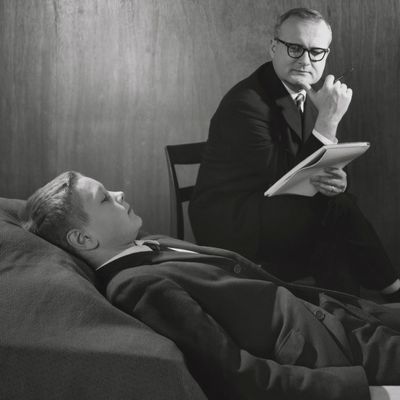
Pop culture has given hypnosis a bit of a bad rap. There’s evidence that it can reduce people’s post-surgery pain and fatigue, soothe their anxiety, and (to a lesser extent) help them quit smoking — and yet when many people think hypnotist, they think of a costumed guy onstage at freshman orientation, convincing some dude from your dorm to quack like a duck and take off his pants.
“It’s been tarred with the brush of dangling watches and purple capes,” David Spiegel, a psychiatry professor at Stanford, recently said in a statement. “In fact, it’s a very powerful means of changing the way we use our minds to control perception and our bodies.” Problem is, no one really knows how it works: As the New York Times recently noted, “scientists have long argued about whether the hypnotic ‘trance’ is a separate neurophysiological state or simply a product of a hypnotized person’s expectations.”
But, the Times reported, new research suggests it may be the former. In a study recently published in the journal Cerebral Cortex, Spiegel and his colleagues identified a handful of differences between the hypnotized brain and one that’s fully conscious. The study authors used MRI machines to observe the brains of 57 people as they underwent hypnosis — 36 who’d scored high on tests measuring susceptibility to hypnosis, and 21 who’d scored low, as a control.
The scans revealed several areas where the two groups looked different, including parts of the brain related to attention, impulse control, and awareness of the body and the greater environment. The brains of the hypnosis-prone volunteers, the Times noted, also had fewer connections between “a region deep in the brain that is active in self-reflection and daydreaming and areas of the prefrontal cortex involved in planning and executing tasks.”
“That’s why the stage hypnotist can get a football coach to dance like a ballerina without feeling self-conscious about what he’s doing,” Spiegel told the paper, and why hypnosis can be a helpful part of therapy: It makes people malleable and open enough to do and believe things they otherwise wouldn’t consider. “It’s got all kinds of capacity that people are just figuring out how to use” — a trait, proponents argue, that makes it a valuable medical tool as much as a cool party trick.

